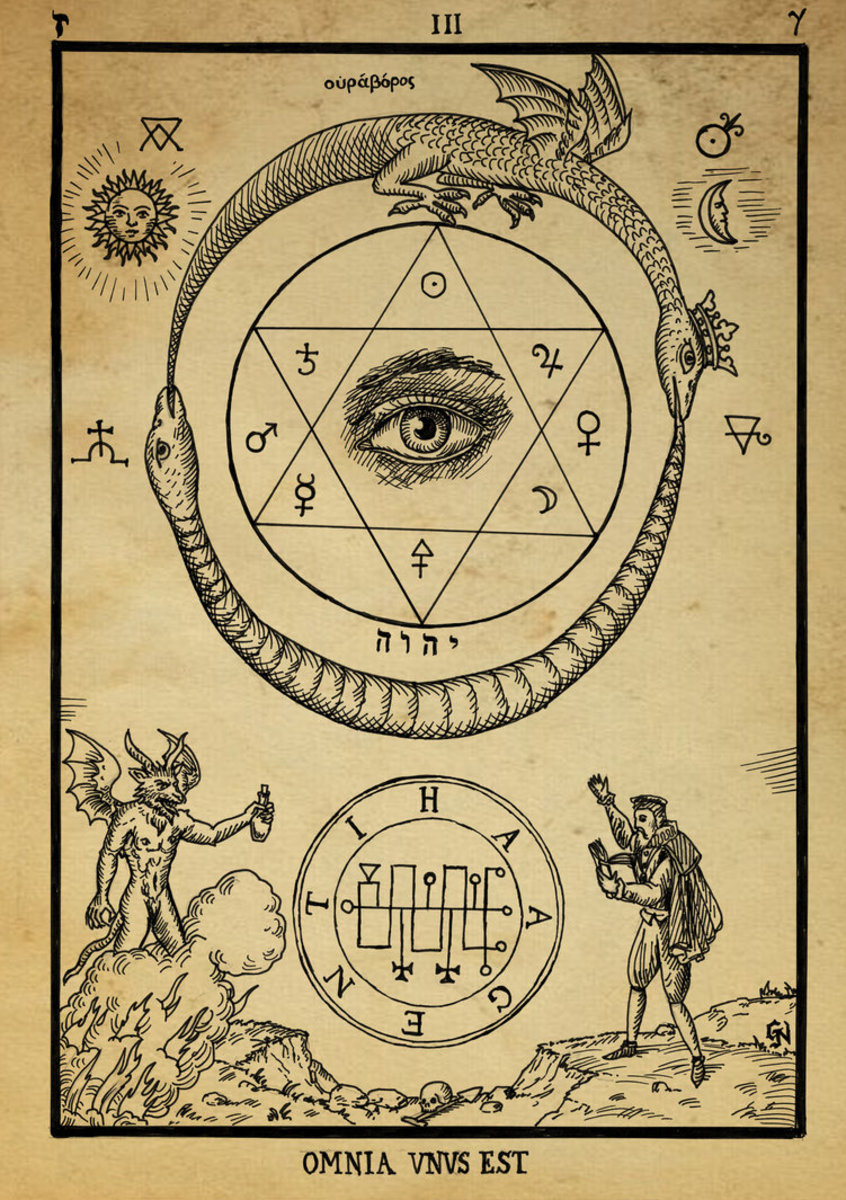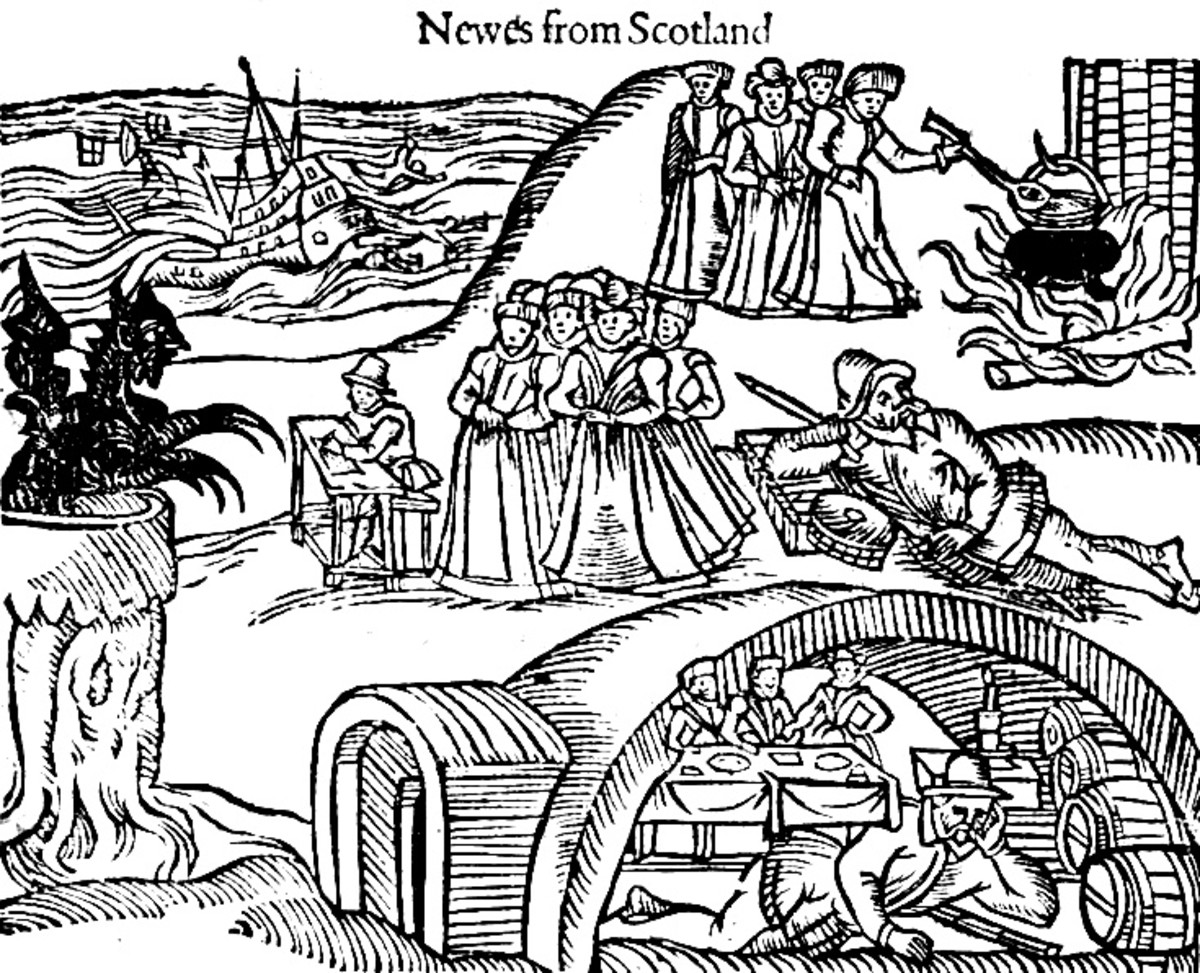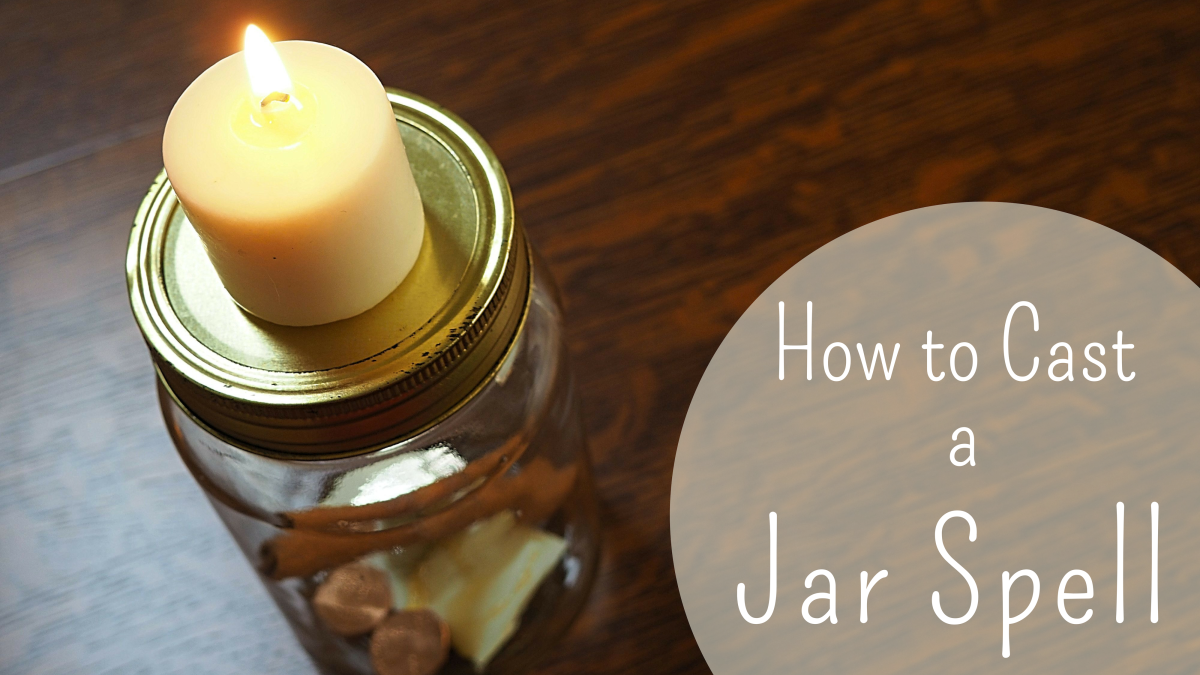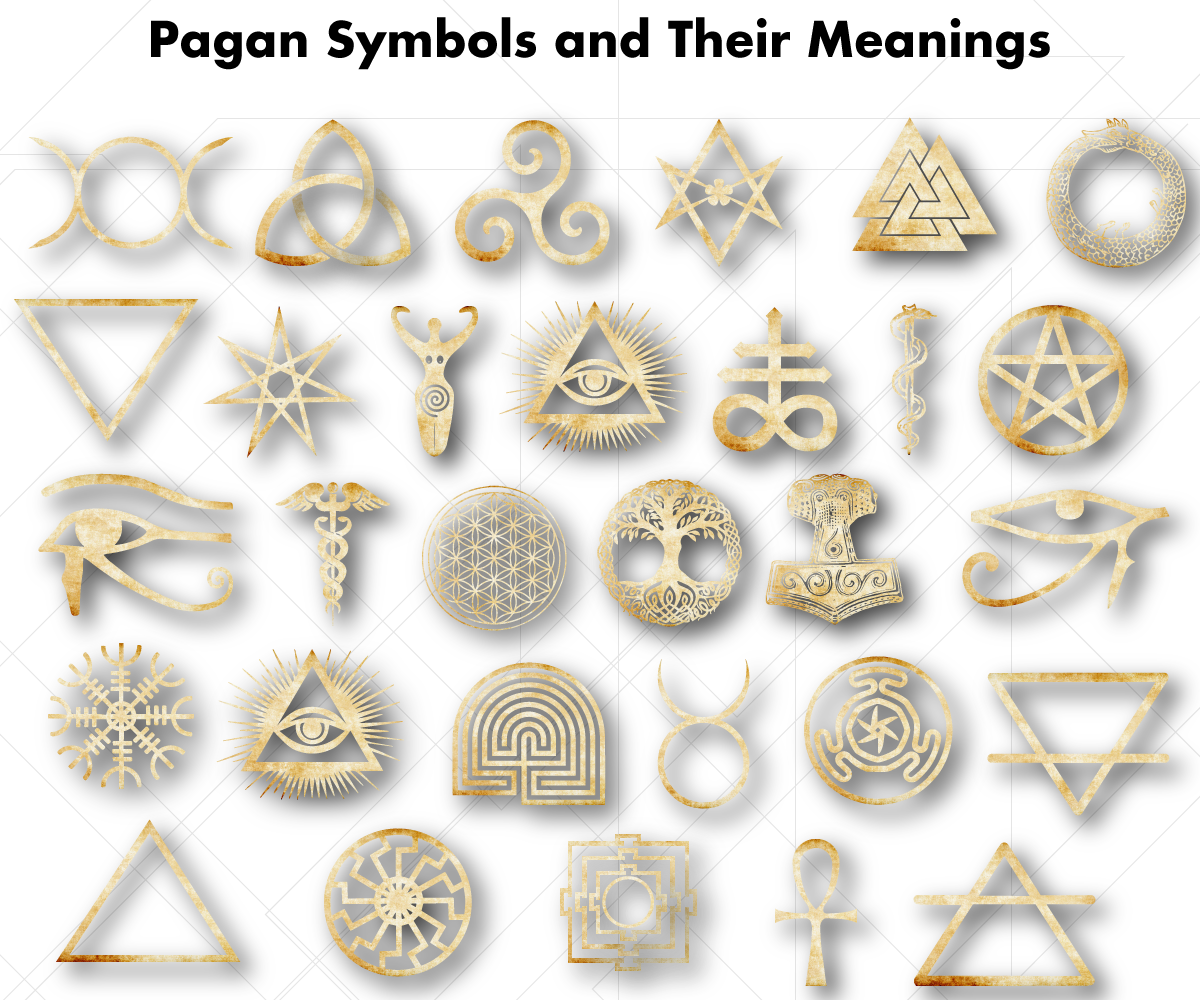Popular and elite magic, such as astrology and alchemy, and why they were so important to early modern Europeans
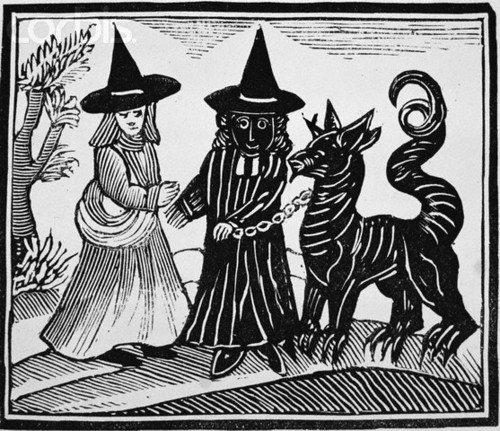
What were popular and elite magic?
During the 16th and 17th centuries there was a strong belief throughout Europe, when it came to magic, but most countries bore very similar ideas. Popular and elite magic were very important to the everyday lives of people during this time, as well as crucial to their beliefs. These beliefs generally did not conflict with their religious views, but often became integrated with them, although the Church did not always accept them. There was a wide spread belief that “witches” or “cunning folk” had special powers. Magic at this time was not looked on with the scepticism it might be today, and it was generally believed to be fact, so much so that there were plenty if books written on the subject by theologians and demonologists. It was commonly believed that these cunning folk had the ability to use magic, and they provided it as a service. These services usually consisted of curing people from black or malefic magic as well as sickness, providing love spells, thief detection or treasure finding, although treasure hunts would have been uncommon since they were rarely successful. If people were in need of healing from natural disease, they might go to a cunning person rather than a doctor, to be treated with folk medicine or herbs. While these services could vary from country to country the core idea stayed very much the same. Cunning folk were important to early modern Europeans as they were a main part of communities, and there was usually one near most villages, towns and cities. Although this was believed to be white magic, according to law it was no different to black magic. But this type of magic was mainly availed of only by the lower class, and the elite mostly did not want anything to do with it, or if they did they would keep it quiet. Astrology and alchemy was considered the magic for the elite. Astrology, the study of the movements of stars and planets and their effect on the world was the more popular one, and one of the main uses of it was predicting the future. The other elite magic was alchemy, which was popular, but often studied discreetly, as it was often frowned upon. The aim of alchemy was to achieve enlightenment and immortality.
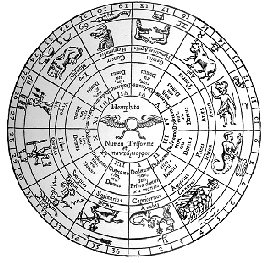
Astrology
The main aspect of astrology that was appealing to people, was that it aimed to give people more control over their own lives. It was believed that the movement of heavenly bodies were what were the catalysts to what happened down here on earth, and that if people could understand these movements, then they could embrace it and therefore be able to be more in command of their own destinies. Astrology had a number of uses, such as nativities, elections and horary questions but the most used was predictions. Predictions worked on the basis of discovering the connections of earth to the position of heavenly bodies, and therefore allowing one to predict where those bodies would be in the future and their effects on the planet. Nativities were based on the placement of the stars at the time of one’s birth, and were basically the same as the horoscopes we have today. Electional astrology was the name given to the use of the alignment of the stars to figure out the correct time for someone to begin a new task or when to have an event. Horary astrology was done by taking the exact time a question is proposed to an astrologer, and then using a chart to figure out an exact answer. It was just before and during the renaissance that astrology became most popular. Because of its connection to astronomy and that it seemed that it was based on mainly facts, astrology was often viewed as more of a science than as magic which gave people more faith in it, than in witches and cunning folk. But at this time, astrology was based on the fact that the world was at the centre of the universe, and that the stars and other planets circled around us.
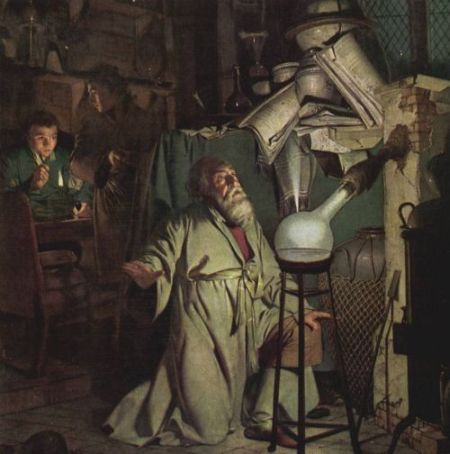
Alchemy
Alchemy was also a very popular magic with the elite during the 16th and 17th centuries. It was commonly believed that the aim of alchemy was to turn common metals into something valuable such as gold, but it was actually also the aim to gain enlightenment and immortality, by discovering legendary items such as the “Philosophers Stone”. Alchemists believed that metals could grow and were living things. Although it was practised quite like a science, it was often thought of more like magic than astrology, and therefore most people of elite class would keep it to themselves if they practised or believed in this kind of magic, weather because of embarrassment or because of fear of punishment. It was often practised by people with an education in medicine, as many believed that when combined with chemistry, alchemy could help cure people of diseases and sicknesses. Although people were often cynical of alchemists, there were many famous intellects that did have faith in the practise, such as Theophrastus Paracelsus and Isaac Newton.
Paracelsian Movement
Details of Newton’s interest in alchemy are not widely known, which just goes to prove that he did not want to advertise or acknowledge his interest in it. Paracelsus on the other hand, was a well known doctor and an alchemist. He was the author of “Philosophia Sagax ”, and he became famous because of his ideas about what illnesses actually were, and how they attacked one’s body, as well as his theories about medicine, and how certain size dosages could work while others would not. His views on alchemy and medicine were quite different to the normal beliefs of the time, which he summed up by saying “Many have said of Alchemy, that it is for the making of gold and silver. For me such is not the aim, but to consider only what virtue and power may lie in medicines ”.[1] Many of his proposed medicines had elements of metals in them which stuck close to the spirit of alchemy. Because of these strange ideas, his work gained a strong following over time, which became the Paracelsian Movement. This movement had many disciples, and they continued to study and create theories, but there was a lot of competition against them with other non alchemist based ideas, and they were favoured frequently due to the general mistrust in alchemy. After Theophrastus Paracelsus’ work, the aim of alchemy had somewhat changed to searching for ways to advance medicine through the study of the relationship between material and mental affinities.
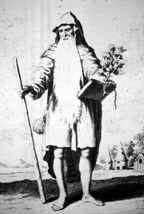
Legality of magic, and commoner's perceptions of "Cunning Folk"
Throughout Europe, it was completely illegal to be a witch or a cunning folk, and also to avail of one’s services. To the ordinary people, the cunning folk were a major part of a community, and it would be unusual without them. But the church considered the magic used by cunning folk to be satanic and evil, and they warned that if someone was to use it, they would be basically making a deal with the devil which would lead to eternal damnation. Even still, it was actually unusual for cunning folk to be prosecuted, as people were often scared of them, and feared that if they accused or tried them for witchcraft they might be cursed. Although, saying that, there were times that a sudden amount of witch trials took place, and in great numbers. This was sometimes because when people heard about one trial, they became scared of the witches in their area, and started to accuse others. But most of the time, if there was someone accused of witchcraft, it was usually directed at someone in the community that was considered annoying, or was on the wrong side of an argument, and was blamed just as a means of getting rid of them. Similar to this, elite magic was also illegal, but was rarely prosecuted. It was considered wrong by the church, but during the enlightenment period the church and many of the educated elite class did not see eye to eye. This was not because these people did not have religious views, but merely because they felt that the church was oppressing the future progress of science, therefore causing many astrologers and alchemists to practice secretly.
Conclusion
To conclude, popular and elite magic was very important to early modern Europeans. Cunning Folk provided services to local communities through healing and for personal gains. Astrology was a means for people to become more in control of their own existence, to which was particularly attractive to some Kings such as Henry VI, Henry VII and Queen Elizabeth. Alchemy was very important during the enlightenment, as it provided an alternative way to approach medicine, and it was crucial to many medical advances.
By S.J Ennis
Bibliography
- “Witchcraft in early modern Europe: studies in culture and belief” by Barry J. Hester and M. Roberts
- Prophecy and Power: Astrology in Early Modern England” by Patrick Curry
- “The Fontana History of Astronomy and Cosmology” by J. North
- “From Paracelsus to Newton: Magic and the Making of the Modern World” by C. Webster
- http://www.crystalinks.com/paracelsus.html



